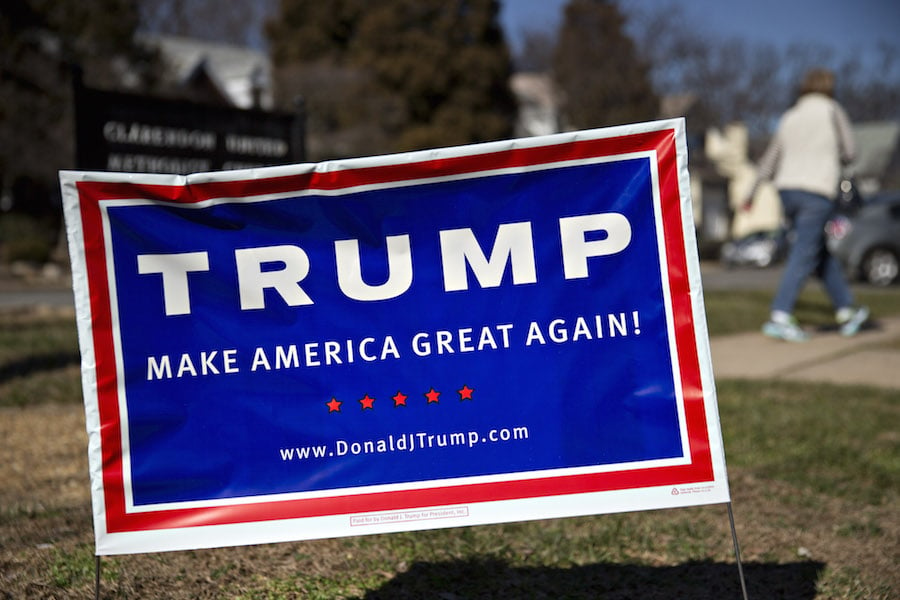Real estate billionaire Donald Trump may be about halfway to the Republican presidential nomination after the votes are tallied later on Tuesday, but some investment advisers say he is still an unknown, while others claim he makes them nervous.
Mr. Trump is widely expected to win most of the 11 states that are casting primary votes on what is known as Super Tuesday. Last month, he triumphed in New Hampshire, Nevada and South Carolina. His only loss so far has been in Iowa.
The reality TV personality has run an aggressive, pugilistic campaign characterized by harsh attacks on his opponents and an almost gleeful willingness to make bombastic statements that offend some voters.
What Mr. Trump hasn't done is lay out a governing agenda.
“We have no idea what his platform is,” said David Haraway, owner and president of advisory firm Substantial Financial. “There is no demonstrated record. We don't know any core beliefs we can be certain of.”
Neil Waxman, managing director of Capital Advisors Ltd., said that Mr. Trump is a “master of manipulation” who has not formulated policies.
“There's no way I have enough data to know whether he would be great or terrible for my clients,” Mr. Waxman said.
But what some advisers have seen and heard so far from Mr. Trump makes them nervous.
(Related read: Donald Trump's financial zingers)
“I don't think markets have fully factored in a Trump administration,” said Paul Auslander, director of financial planning at ProVise Management Group. “It would shake them to the core.”
An independent financial planner in Miami — one of the most international cities in the country — is put off by Mr. Trump's provocative assertions about building walls to keeping immigrants out of the country and his protectionist rhetoric about international trade.
“General isolationist policies do not feed into economic growth,” said Ashley O'Kurley, who is a board member of the Florida Financial Planning Association.
But Mr. Trump, who
came out on top of an InvestmentNews poll last month, does have those in the adviser community who say some good things about him, even if he's not their first choice for the GOP nomination.
John Nersesian, managing director of wealth management at Nuveen Investments, backs Mr. Trump's idea to lower tax rates, broaden the tax base and eliminate many deductions.
“There are some aspects of Trump's proposals that seem promising,” said Mr. Nersesian, a recent chairman of the Investment Management Consultants Association. “I'm very much in favor of tax reform and simplification. It's the number one issue for me.”
Another adviser doubts that Mr. Trump will be able to follow through on some of the more outlandish claims he's made during the campaign.
He'll revert to making deals with Congress on entitlement, tax and immigration reform — an approach that might “unstick government,” said Bryan Beatty, a partner at Egan Berger Weiner, an advisory firm in the Virginia suburbs of Washington.
“If they see him moderate on issues and look more like the status quo, markets will most likely rally on that idea,” Mr. Beatty said.
But Mr. Auslander said Congress will be Mr. Trump's biggest problem because he's disliked by Republicans and Democrats.
“If Americans think there is gridlock in Washington now, they haven't seen anything compared to the inaction that would result from a Trump presidency,” Mr. Auslander said.







